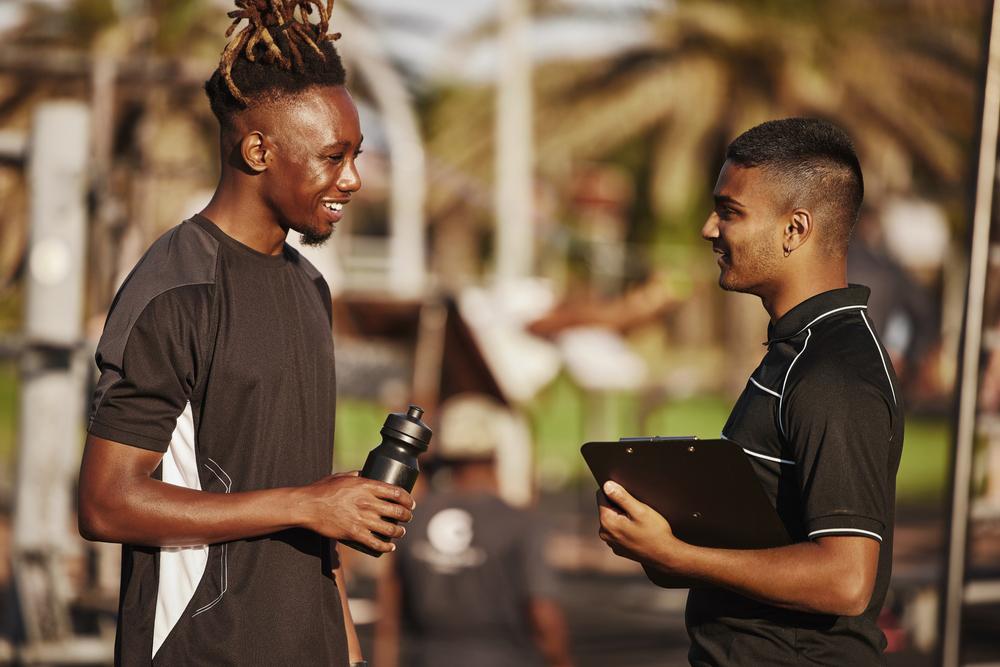As an athlete, you may have grown up with a ‘win at all costs’ mentality, and the idea of quitting anything was frowned upon. Or maybe you feel like leaving a sport will disappoint a parent or coach. If you’re debating your future in a sport or on a team, you’re not alone. Here, Nadia Kyba, MSW, TrueSport Expert and President of Now What Facilitation, is sharing some common signs that it might be time to quit or take a step back from sport.
If your love for the game is gone
 “When you realize that you don’t want to go to practice and you’re no longer excited to compete, those are two key signs,” says Kyba. To be clear, everyone has days where practice feels annoying or a competition seems unpleasant. Don’t quit the first time you don’t feel like heading to practice after school. Ask yourself if this is just because of something that’s happening this week—like a disagreement with a teammate—or if this is a feeling that has been there for a while. If that feeling has persisted for a while and every practice or competition feels like a grind, that’s a sign that you may need a break.
“When you realize that you don’t want to go to practice and you’re no longer excited to compete, those are two key signs,” says Kyba. To be clear, everyone has days where practice feels annoying or a competition seems unpleasant. Don’t quit the first time you don’t feel like heading to practice after school. Ask yourself if this is just because of something that’s happening this week—like a disagreement with a teammate—or if this is a feeling that has been there for a while. If that feeling has persisted for a while and every practice or competition feels like a grind, that’s a sign that you may need a break.
“Be kind and really listen to yourself,” says Kyba. And don’t forget: You can usually tell a coach you need to take a week or two off before fully quitting the team. Sometimes, a week or two off will actually re-energize you and bring back your motivation.
It’s also worth investigating if the feeling of not wanting to play continues through practice/games, or if it just happens as you’re heading to practice or getting warmed up. If you end practices and games feeling good, you may not want to quit the sport, but you might need to investigate other areas of your life. Maybe you’re overwhelmed with the combination of schoolwork, other extracurriculars, and your sport. Or maybe there’s something else happening in another area of your life that you need to address.
If you’re there to please someone else
This is a trap many young athletes fall into, particularly ones who’ve been in sports since a young age and have shown ’natural talent.’ “Staying in a sport just to please your parents or your coaches is not a good reason to do something,” says Kyba. “Young athletes really struggle with not wanting to hurt someone or not wanting to let someone down. Maybe you’re staying in a sport because one of your parents loves it and is excited that you’re in it, or you’re in the sport because you don’t know how to tell your coach that you want to leave. But it’s not healthy to continue in a sport that you’re only in for other people.”
If you feel stuck in your identity as an athlete
 “When you’ve been an athlete for a long time, that can become how you self-identify, even if it doesn’t make you happy,” says Kyba. If you’ve grown up being ‘a runner’ or ‘a basketball player,’ it can feel scary to release that identity, even if it no longer fits. But it’s okay to let things go. “Picture the next few years,” suggests Kyba. “Imagine sticking with a sport you hate, staying in it all through high school, and heading into college. Then, picture what you could do if you quit. It’s so important to understand that sticking with something you don’t like is also keeping you away from things you potentially may enjoy more.”
“When you’ve been an athlete for a long time, that can become how you self-identify, even if it doesn’t make you happy,” says Kyba. If you’ve grown up being ‘a runner’ or ‘a basketball player,’ it can feel scary to release that identity, even if it no longer fits. But it’s okay to let things go. “Picture the next few years,” suggests Kyba. “Imagine sticking with a sport you hate, staying in it all through high school, and heading into college. Then, picture what you could do if you quit. It’s so important to understand that sticking with something you don’t like is also keeping you away from things you potentially may enjoy more.”
If you feel like you’re always anxious
For young athletes, letting go of a sport can be an easy way to relieve anxiety brought on from being overwhelmed and over-scheduled—and it might not be forever, it might just be for a semester. “If you feel like you’re always anxious because you just have too much going on, you may need a break,” says Kyba. “It’s a life skill to know when you need to let things go, and to say that you value your mental health.”
If you’re dealing with injuries
 In youth sport, often after an injury—a concussion, a fractured wrist, or even an illness—the question is usually, ‘How quickly can I get back to playing?’ This is the question that coaches, doctors, and parents will typically focus on. But maybe readiness to play is about more than physical clearance.
In youth sport, often after an injury—a concussion, a fractured wrist, or even an illness—the question is usually, ‘How quickly can I get back to playing?’ This is the question that coaches, doctors, and parents will typically focus on. But maybe readiness to play is about more than physical clearance.
“It’s understandable that, after having multiple concussions, you don’t feel comfortable going back to that sport,” says Kyba. “Doctors and coaches are assuming that you do want to return to play, but you’re allowed to decide to change sports or stop playing for a while in order to recover both physically and mentally from injury.”
If there’s a values mismatch
Some teams are ultra-competitive, and some are more recreational. “If the team that you’re playing for, or the sport that you’re involved with, doesn’t align with the reason you’re there, it may not be the right fit for you,” says Kyba. For instance, if you love to swim recreationally, but your school’s swim team is extremely competitive, you may not enjoy training or racing with that team. In this case, you may want to consider looking for other clubs or teams in your area that are less competitive but will still allow you the chance to swim with teammates.
You may also find that your values don’t align with those of your teammates and coaches: It’s one thing to not agree entirely with a coach or not be best friends with all your teammates, but if the idea of spending time with them makes you unhappy, you may want to look for another team to play on.
If you are facing discrimination
Discrimination of any kind is not okay and should be brought to the attention of the school or governing body and addressed immediately. However, you as the student athlete are not responsible for taking on the role of the person fighting discrimination.
“If you feel as though you are facing discrimination—for your gender, sexuality, race, anything—and you just don’t feel like the team is the right fit for you, it is okay for you to leave,” says Kyba. Some athletes may choose to stay on the team and speak up, working to combat that discrimination. But it is your choice entirely, and neither response is wrong.
“It is not an athlete’s responsibility to deal with discrimination,” says Kyba. “To have the people who have been discriminated against be the ones who are constantly educating others is exhausting. It’s up to the leaders in sports to make things better, it’s not a young athlete’s job to have to constantly be fighting that battle.”
________________________
TAKEAWAY: As an athlete, you may feel pressure from family, coaches, or even just yourself to stay in a certain sport, especially if you’re talented at it. But it’s okay—and normal—to need to step back from a sport. There are many valid reasons, from feelings of apathy to interest in other activities. If you’re struggling in your sport, talk to your coach or parents about what stepping away could look like for you. You don’t need to ‘tough it out.’



